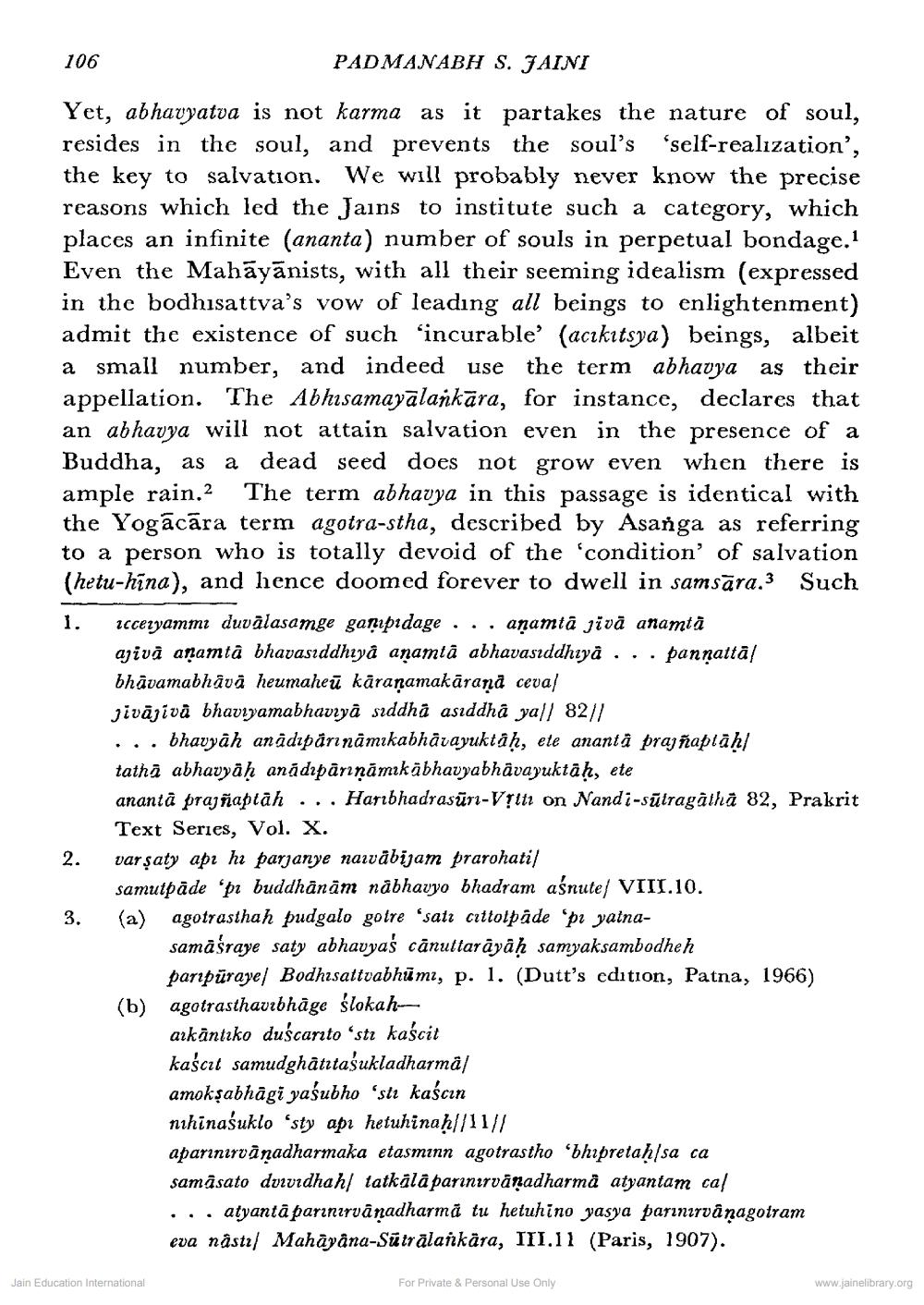________________
106
PADMANABH S. JAINI
Yet, abhavyatva is not karma as it partakes the nature of soul, resides in the soul, and prevents the soul's 'self-realization', the key to salvation. We will probably never know the precise reasons which led the Jains to institute such a category, which places an infinite (ananta) number of souls in perpetual bondage 1 Even the Mahāyānists, with all their seeming idealism (expressed in the bodhisattva's vow of leading all beings to enlightenment) admit the existence of such 'incurable' (acıkıtsya) beings, albeit a small number, and indeed use the term abhavya as their appellation. The Abhisamayalankāra, for instance, declares that an abhavya will not attain salvation even in the presence of a Buddha, as a dead seed does not grow even when there is ample rain. The term abhavya in this passage is identical with the Yogācāra term agotra-stha, described by Asanga as referring to a person who is totally devoid of the "condition of salvation (hetu-hina), and hence doomed forever to dwell in samsāra 3 Such
3.
icceryammi duvālasamge gampıdage ... anamtā jivā anamtā ajivå anamtā bhavasiddhıya anamtā abhavasıddhiya ... þannatta/ bhāvamabhävà heumaheū kāraṇamakārana ceva/ jivārīvā bhaviyamabhaviyā saddha asıddha ya// 82/1 ... bhavyāh anādipannāmikabhāvayuktāḥ, ele ananta prajñapläh/ tathì abhavyāḥ anádipāniņāmıkābhavyabhavayuktah, ete anantâ prajñaptāh... Haribhadrasüri-Vğltı on Nandi-sūtragathā 82, Prakrit Text Series, Vol. X. var şaty apı hi parganye naivābijam prarohati/ samutpäde 'pr buddhānām nàbhavyo bhadram aśnutel VIII.10. (a) agotrasthah pudgalo gotre 'satı cıttolpade 'pr yalna
samaśraye saty abhavyas cānuttarāyāh samyaksambodheh parıpürayel Bodhisattvabhūmi, p. 1. (Dutt's edition, Patna, 1966) agotrasthavibhāge slokaharkāntiko duścanto “sti kaścit kaścrt samudghātutasukladharma/ amokşabhāgi yaśubho 'stı kaścın nihinaśuklo 'sty api hetuhinaḥ||11/1 aparınırvånadharmaka etasminn agotrastho 'bhipretah/sa ca samasato dvividhah/ tatkālā paninirvanadharmå atyantam cal ... atyanta parinirvanadharma tu hetuhino yasya parinirvanagotram eva nästa/ Mahayana-Sūtrālankära, III.11 (Paris, 1907).
b)
Jain Education International
For Private & Personal Use Only
www.jainelibrary.org




